Apr
22
2021
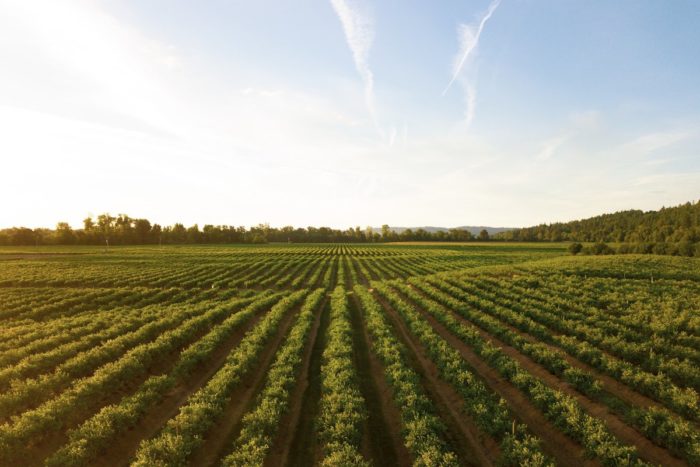 European Union (EU) agricultural scientists are in a bit of a pickle. I’m not sure to what extent it is one of their own making or how much it was imposed upon them by politics and public opinion, but they are now confronting a dilemma they at least ignored if not helped to create. The question is – how best to achieve sustainable agriculture in a world with a growing population? This problem is made more difficult by the fact that we already tapped the most efficient arable land, so any extension of agricultural land will necessarily push into less and less efficient land with greater displacements of populations and natural ecosystems.
European Union (EU) agricultural scientists are in a bit of a pickle. I’m not sure to what extent it is one of their own making or how much it was imposed upon them by politics and public opinion, but they are now confronting a dilemma they at least ignored if not helped to create. The question is – how best to achieve sustainable agriculture in a world with a growing population? This problem is made more difficult by the fact that we already tapped the most efficient arable land, so any extension of agricultural land will necessarily push into less and less efficient land with greater displacements of populations and natural ecosystems.
The dilemma stems from the EU’s regulatory support for organic farming. The core problem is actually the very concept of organic farming itself, which is rooted historically and ideologically in pseudoscience. Organic farming is philosophy-based rather than science-based farming – it is a manifestation of the appeal to nature fallacy. The result is a set of specific rules in order to qualify as “organic” that mostly represent a rejection of modern agricultural technology. There are some good things in there as well. Sometimes low tech methods are best. But organic farming does not use the best most sustainable methods. It uses the most “natural” methods, by some vague, arbitrary, gut-feeling criteria. So, for example, you can use pesticides, but only if they are derived from natural sources, even if they are less effective and more toxic. You also can’t irradiate food, because irradiation seems scary (even though it safely reduces food spoilage thereby reducing waste and foodborne disease).
And of course the organic farming industry is driving the biggest controversy in agriculture – the use of genetically modified organisms (GMOs). This is the focus of a new paper by EU agricultural scientists who now have to confront the organic farming hobgoblin which is getting in the way of sustainable farming. Here are the highlights: They open by dispensing with the most common argument used to dismiss the need for GMOs and justify organic farming inefficiency –
Sustainable food systems will require profound changes in people’s consumption patterns and lifestyles, which is true regardless of the farming methods used and does not change the fact that organic farming often requires more land than conventional farming for the same quantity of food output.
Continue Reading »
Dec
14
2018
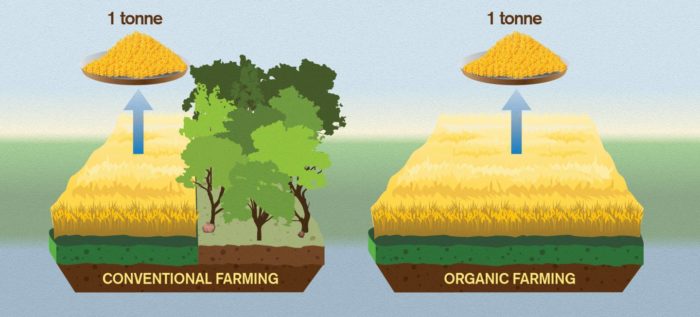 I know I have been hitting this topic frequently recently, but I can’t ignore a major study published in Nature. The study is not just about organic farming, but about how we use land and implications for climate change, specifically carbon sequestration. The core idea is this – when we consider land use and its impact on the climate, we also have to consider the opportunity cost of not using the land in a more useful way. This echoes a previous study by different authors I discussed five months ago, and a review article by still different authors I discussed three months ago.
I know I have been hitting this topic frequently recently, but I can’t ignore a major study published in Nature. The study is not just about organic farming, but about how we use land and implications for climate change, specifically carbon sequestration. The core idea is this – when we consider land use and its impact on the climate, we also have to consider the opportunity cost of not using the land in a more useful way. This echoes a previous study by different authors I discussed five months ago, and a review article by still different authors I discussed three months ago.
There certainly does now seem to be a growing consensus that we have to think very carefully about how we use land in order to minimize any negative impact on the environment, and specifically limit carbon in the atmosphere driving climate change.
The new study essentially argues that we need to use land optimally. If land is well suited to growing corn, then we should grow corn. If it is better suited for forestation, then we should allow forests to grow there and not convert it to farmland. Forests sequester a lot more carbon than farmland, and this is a critical component to any overall strategy to mitigate climate change. The authors calculate that land use contributes, “about 20 to 25 per cent of greenhouse gas emissions.”
If we put the various studies I have been discussing together, a compelling image emerges. First, we need to consider that we are already using all the best farmland to grow crops. Any expansion of our farmland will by necessity be using less and less optimal land for farming. This translates to a greater negative impact on the climate. However, our food production needs will grow by about 50% by 2050.
This is a strong argument, in my opinion, against biofuels. We need that land to grow food, not fuel – unless we can source biofuels from the ocean or industrial vats without increasing land use.
Continue Reading »
May
25
2017
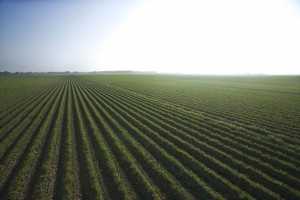 Marketing sometimes involves the science of making you believe something that is not true, with the specific goal of selling you something (a product, service, or even ideology). The organic lobby, for example, has done a great job of creating a health halo and environmentally friendly halo for organic produce, while simultaneously demonizing their competition (recently focusing on GMOs).
Marketing sometimes involves the science of making you believe something that is not true, with the specific goal of selling you something (a product, service, or even ideology). The organic lobby, for example, has done a great job of creating a health halo and environmentally friendly halo for organic produce, while simultaneously demonizing their competition (recently focusing on GMOs).
These claims are all demonstrably wrong, however. Organic food is no more healthful or nutritious than conventional food. Further, GMO technology is safe and there are no health concerns with the GMO products currently on the market.
There is an even more stark difference, however, between beliefs about the effects of organic farming on the environment and reality. In fact organic farming is worse for the environment than conventional farming in terms of the impact vs the amount of food produced.
First, organic farming may use pesticides. They just have to be “natural” pesticides, which means the ones they use are not chosen based upon their properties. Ideally choice of pesticide and the strategy in using them would be evidence-based and optimized for best effect, minimal impact on health and the environment, cost effectiveness, and convenience. Organic farming, however, does not make evidence-based outcome choices. Their primary criterion is that the pesticides must be “natural”, even if they are worse in every material aspect. This represents ideology trumping evidence. It is based on the “appeal to nature” fallacy, an unwarranted assumption that something “natural” will be magically better than anything manufactured.
Continue Reading »
Jul
18
2014
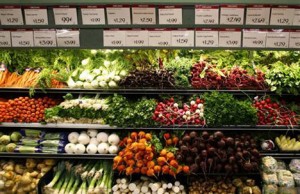 The Guardian’s headline reads: Clear differences between organic and non-organic food, study finds. While this article was better than most in including some caveats, it was clearly favorable to the conclusions in the study, and failed, in my opinion, to properly put the new study into an informative context.
The Guardian’s headline reads: Clear differences between organic and non-organic food, study finds. While this article was better than most in including some caveats, it was clearly favorable to the conclusions in the study, and failed, in my opinion, to properly put the new study into an informative context.
How does this new study add to the literature looking at the safety and health effect of organic produce vs conventional produce?
First, the study is a meta-analysis of 343 prior studies looking at nutrient content, pesticide, and heavy metal contamination of produce. It is not a collection of any new data. A meta-analysis is very tricky to conduct well – it does not improve the quality of the data going into the analysis, only the statistical power. Further it introduces another layer of potential bias (another researcher degree of freedom) in which studies are chosen for the analysis.
This study used very open criteria, and therefore included more lower-quality studies (likely to be false positive or show the bias of the researchers) than other meta-analyses.
Continue Reading »
Apr
28
2014
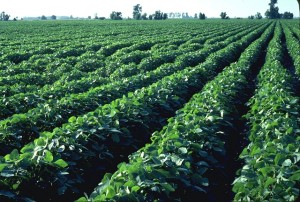 There are many public debates raging that are essentially dueling narratives, both sides claiming to have science, evidence, and logic on their side. It always fascinates me when two groups can look at the same evidence and come to opposite conclusions. Is man-made climate change a real danger or all hype? Are alternative medicine treatments a revolution or a scam? Is GMO our best hope for sustainable agriculture or a looming health menace? Is organic farming useful or just marketing the naturalistic fallacy?
There are many public debates raging that are essentially dueling narratives, both sides claiming to have science, evidence, and logic on their side. It always fascinates me when two groups can look at the same evidence and come to opposite conclusions. Is man-made climate change a real danger or all hype? Are alternative medicine treatments a revolution or a scam? Is GMO our best hope for sustainable agriculture or a looming health menace? Is organic farming useful or just marketing the naturalistic fallacy?
These binary choices are a bit of a false dichotomy, but not entirely, as people do tend to fall into one or the other camp. The narratives then tend to polarize the two sides with self-reinforcing echochambers of opinion and information.
I am also not suggesting that in each of the topics above the two sides are symmetrical or equally valid. Alternative medicine, for example, is a scam – it is the explicit creation of a double standard in order to market treatments that fail the test of scientific validity.
Continue Reading »
Nov
20
2012
Anyone who has been blogging for a while and covers even remotely controversial topics is likely to get hostile comments and e-mail. I recently received the following comment on a prior blog entry about organic farming:
It suits well that this shill would say some ubsurd shit like conventional pesticide and herbicide drenched food isnt bad for you! lol why dont you drink some round up to show us it isnt harmful! you fucking lame http://www.cornucopia.org/2012/09/stanfords-spin-on-organics-allegedly-tainted-by-biotechnology-funding/
Its too late people are losing conventional foods like its a hot potato! So its only a matter of time before your out of business because the corporations that pay you will be out of business.
But theirs alot of things I want to say to a scum like you but I will keep my mouth shut. I hope you sleep well at night you sellout and enemy to humanity!
geeksquad100
There are some common themes in the comment and the linked article that are worth exploring. First, the tone of the comment is hostile and juvenile. I don’t mind the judicious use of profanity, but it’s clear when people are relying on profanity as a cheap way to lend emotional weight to their words because they cannot do so with their ideas or prose. This, unfortunately, has become common in the social space of the internet. Psychologists are beginning to look at the phenomenon sometimes referred to as “internet balls” – the lack of usual social cues and pressures allows for the shedding of normal polite behavior. People commenting anonymously into a virtual space are free to say things they would never have said in person.
Continue Reading »
Sep
17
2018
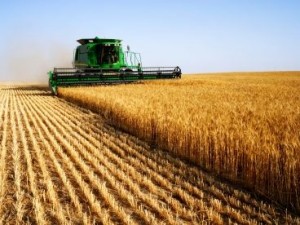 A new study reviews hundreds of articles on several farming systems (dairy, beef, wheat, and rice) to compare different approaches to farming and their net effect on the environment. They conclude that intensive farming systems are the “least bad” option for providing the food we need. This is in line with previous studies showing that organic farming uses significantly more land than conventional farming.
A new study reviews hundreds of articles on several farming systems (dairy, beef, wheat, and rice) to compare different approaches to farming and their net effect on the environment. They conclude that intensive farming systems are the “least bad” option for providing the food we need. This is in line with previous studies showing that organic farming uses significantly more land than conventional farming.
Farming has a huge negative impact on the environment. There is no way around that basic fact – farmland displaces natural ecosystems and has significant externalities, such as water use, release of CO2 from the soil, and runoff of chemicals into the environment. Right now we are using 11% of all land on Earth for farming, which is most of the land that is reasonably suitable for farming. To meet the needs of a growing population, we may need to expand farmland, into less and less productive land, which would significantly increase the negative impact of farming on the environment.
Some previous studies compared different farming systems by measuring the impact they have on the land. But this type of analysis is misleading – the authors of the current study instead looked at the environmental impact for a given production of food. That is what really matters. They also looked at studies that measured externalities, as listed above. They found:
Their results from four major agricultural sectors suggest that, contrary to many people’s perceptions, more intensive agriculture that uses less land may also produce fewer pollutants, cause less soil loss and consume less water.
They found that organic dairy farming uses twice as much land as conventional farming, for example.
Continue Reading »
Mar
24
2022
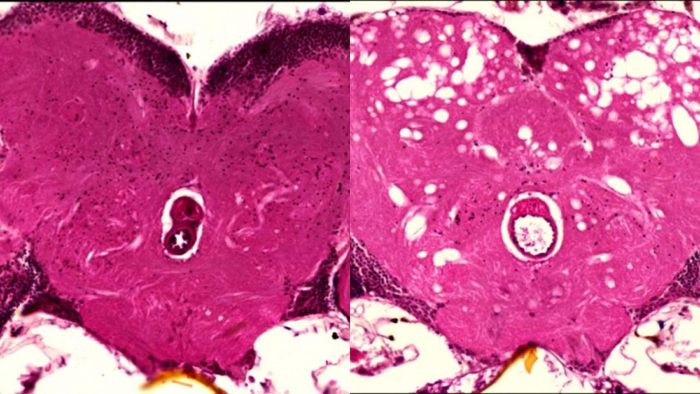 As I have discussed many times on this blog, organic farming is an ideological approach to farming that is ultimately harmful to the environment and agriculture. This is because it is not evidence-based, but rather is based on a dubious philosophy, the notion that methods that are more “natural” (a poorly defined concept) are inherently safer and superior to methods that are “artificial”. The term “organic” is mainly used as a marketing term to create a health halo around products that allow for charging an ideological premium, without any proven benefit.
As I have discussed many times on this blog, organic farming is an ideological approach to farming that is ultimately harmful to the environment and agriculture. This is because it is not evidence-based, but rather is based on a dubious philosophy, the notion that methods that are more “natural” (a poorly defined concept) are inherently safer and superior to methods that are “artificial”. The term “organic” is mainly used as a marketing term to create a health halo around products that allow for charging an ideological premium, without any proven benefit.
One aspect of organic farming is that it does not allow for the use of synthetic pesticides, but does allow for the use of natural pesticides. Conceptually this makes no scientific sense – substances which occur in nature can be deadly poisons, just as synthetic substances can. The degree to which something is “natural” is completely orthogonal to how safe or toxic it is to various domains of life. Using natural as a proxy for safety is therefore a completely unscientific and nonsensical approach, but that is organic farming.
Pest management is one of the greatest challenges of modern agriculture. The problem comes from the fact that we are packing in rows and rows of the same crop. That presents an attractive food source to anything that can eat it. Pests can be devastating to crops, and so keeping them under control is necessary for successful agriculture. There are a number of methods that can be used, and experts generally recommend what is called integrated pest management (IPM), which uses multiple methods to reduce pest burden on crops. IPM includes the judicious use of pesticides where necessary, and both conventional and organic farming uses pesticides with organic farming limiting itself to those it deems “natural”.
Continue Reading »
Mar
03
2022
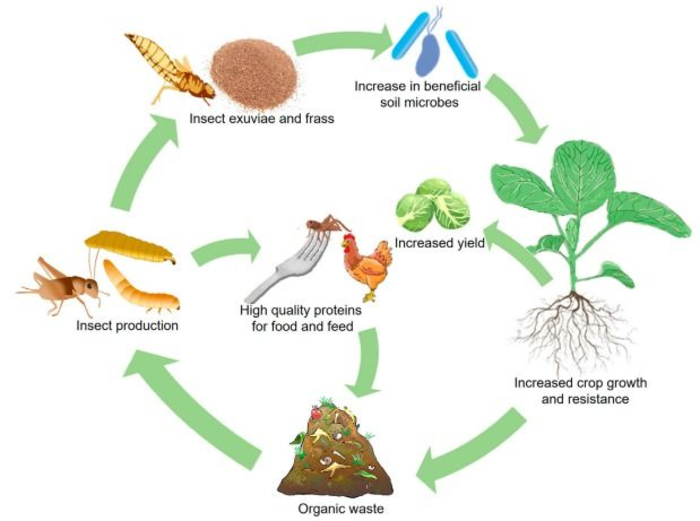 What are exuviae and frass? These are terms I just learned and are probably new to you as well, but they may become more familiar in the future. Exuviae are molted exoskeletons from insects and are primarily made of chitin. Frass is undigested food from insects, so basically bug poop. Frass could make a good fertilizer for plants because it is high in nitrogen. Exuviae would not serve as fertilizer, but there are species of soil bacteria that can break down chitin for food. Adding exuviae to soil increases the population of these soil bacteria, which are beneficial to plants and make them more resilient to pests.
What are exuviae and frass? These are terms I just learned and are probably new to you as well, but they may become more familiar in the future. Exuviae are molted exoskeletons from insects and are primarily made of chitin. Frass is undigested food from insects, so basically bug poop. Frass could make a good fertilizer for plants because it is high in nitrogen. Exuviae would not serve as fertilizer, but there are species of soil bacteria that can break down chitin for food. Adding exuviae to soil increases the population of these soil bacteria, which are beneficial to plants and make them more resilient to pests.
Exuviae and frass, therefore, can be extremely useful for farming. But where are we going to get the massive quantities of these materials that would be necessary to have any significant impact on our agricultural system? Well, we could farm insects for food and use the waste products of insect farming for plant agriculture. This could be the basis for a circular agricultural system. Organic matter from plant and animal farming can be used to feed insects which are also grown for food. The exuviae and frass from the insect farming can then be fed back into plant farming as fertilizer. This would not be a totally closed system, of course. Humans would be removing calories and nitrogen from the system to feed themselves, and human waste is typically not recycled as fertilizer (this is a separate issue – the risks and benefits of using humanure).
Insects are increasingly recognized as an important source of food. They have several advantages, the biggest being that they are small. This translates into a high food output to land use ratio. Raising insects also uses far less water than other food sources. Insects can also be easily farmed indoors, meaning they can be farmed year-round and in urban settings. Already there is significant farming of crickets, grasshoppers, mealworms, waxworms, and other insects for food. The insects are not generally consumed whole (although they can be), they are ground up and used as protein powder (such as cricket flour).
Continue Reading »
Nov
01
2021
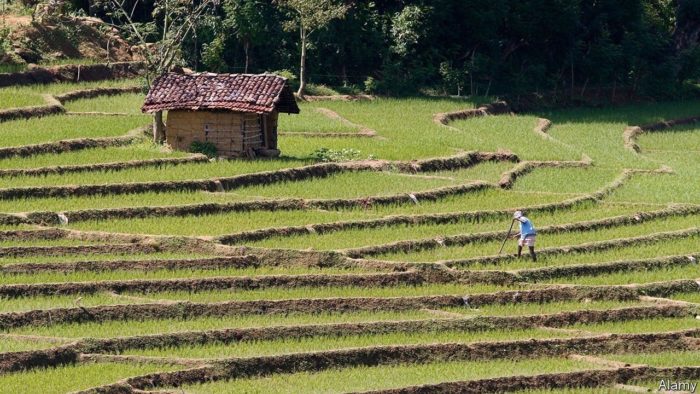 Cautionary tales are extremely useful, as long as we take the right lessons away from them. As the saying goes, the best way to learn is from mistakes, but even better is to learn from someone else’s mistake without having to commit it yourself (and suffer the consequences). Sri Lanka has now made itself into a cautionary tale, and I would like to amplify any learning that can come from it. The primary conceptual lesson here is that – when ideology trumps science, the outcome is likely to be very bad.
Cautionary tales are extremely useful, as long as we take the right lessons away from them. As the saying goes, the best way to learn is from mistakes, but even better is to learn from someone else’s mistake without having to commit it yourself (and suffer the consequences). Sri Lanka has now made itself into a cautionary tale, and I would like to amplify any learning that can come from it. The primary conceptual lesson here is that – when ideology trumps science, the outcome is likely to be very bad.
There is also a specific lesson here. Organic farming may sound good in principle (if you just listen to the ideological marketing), but in practice it is a disaster. Sri Lanka has decided to do what other countries have done before, namely impose from above a commandment on how to run an industry based entirely on the philosophical beliefs of the leader. Perhaps the most famous example of this is Lysenkoism in the former Soviet Union, where the archaic ideas of geneticist Trofim Lysenko were given official support and decimated Soviet agriculture, costing millions of lives.
President Gotabaya Rajapaksa of Sri Lanka has done something similar – banning agrichemicals in Sri Lanka and forcing all farmers to farm organically. The result was absolutely predictable, a crash in agricultural output. While Sri Lanka is a net food importer, they still are dependent on local rice and other staple crop productions. Their exports are also mainly agricultural, such as tea, rubber, and many spices. Some reporting has focused on the timing of the change, during a fragile recovery from a pandemic. Also some have pointed out that going suddenly full organic is a problem because most farmers don’t know how to do it, and there was no adjustment period.
Continue Reading »
 European Union (EU) agricultural scientists are in a bit of a pickle. I’m not sure to what extent it is one of their own making or how much it was imposed upon them by politics and public opinion, but they are now confronting a dilemma they at least ignored if not helped to create. The question is – how best to achieve sustainable agriculture in a world with a growing population? This problem is made more difficult by the fact that we already tapped the most efficient arable land, so any extension of agricultural land will necessarily push into less and less efficient land with greater displacements of populations and natural ecosystems.
European Union (EU) agricultural scientists are in a bit of a pickle. I’m not sure to what extent it is one of their own making or how much it was imposed upon them by politics and public opinion, but they are now confronting a dilemma they at least ignored if not helped to create. The question is – how best to achieve sustainable agriculture in a world with a growing population? This problem is made more difficult by the fact that we already tapped the most efficient arable land, so any extension of agricultural land will necessarily push into less and less efficient land with greater displacements of populations and natural ecosystems.
 I know I have been
I know I have been  Marketing sometimes involves the science of making you believe something that is not true, with the specific goal of selling you something (a product, service, or even ideology). The organic lobby, for example, has done a great job of creating a health halo and environmentally friendly halo for organic produce, while simultaneously demonizing their competition (recently focusing on GMOs).
Marketing sometimes involves the science of making you believe something that is not true, with the specific goal of selling you something (a product, service, or even ideology). The organic lobby, for example, has done a great job of creating a health halo and environmentally friendly halo for organic produce, while simultaneously demonizing their competition (recently focusing on GMOs).

 A
A  As I have
As I have  What are exuviae and frass? These are terms I just learned and are probably new to you as well, but they may become more familiar in the future. Exuviae are molted exoskeletons from insects and are primarily made of chitin. Frass is undigested food from insects, so basically bug poop. Frass could make a good fertilizer for plants because it is high in nitrogen. Exuviae would not serve as fertilizer, but there are species of soil bacteria that can break down chitin for food. Adding exuviae to soil increases the population of these soil bacteria, which are beneficial to plants and make them more resilient to pests.
What are exuviae and frass? These are terms I just learned and are probably new to you as well, but they may become more familiar in the future. Exuviae are molted exoskeletons from insects and are primarily made of chitin. Frass is undigested food from insects, so basically bug poop. Frass could make a good fertilizer for plants because it is high in nitrogen. Exuviae would not serve as fertilizer, but there are species of soil bacteria that can break down chitin for food. Adding exuviae to soil increases the population of these soil bacteria, which are beneficial to plants and make them more resilient to pests. Cautionary tales are extremely useful, as long as we take the right lessons away from them. As the saying goes, the best way to learn is from mistakes, but even better is to learn from someone else’s mistake without having to commit it yourself (and suffer the consequences). Sri Lanka has now made itself into a cautionary tale, and I would like to amplify any learning that can come from it. The primary conceptual lesson here is that – when ideology trumps science, the outcome is likely to be very bad.
Cautionary tales are extremely useful, as long as we take the right lessons away from them. As the saying goes, the best way to learn is from mistakes, but even better is to learn from someone else’s mistake without having to commit it yourself (and suffer the consequences). Sri Lanka has now made itself into a cautionary tale, and I would like to amplify any learning that can come from it. The primary conceptual lesson here is that – when ideology trumps science, the outcome is likely to be very bad.




